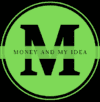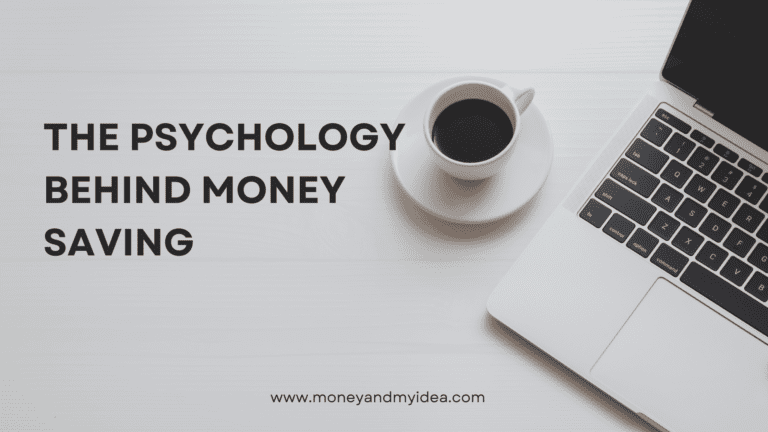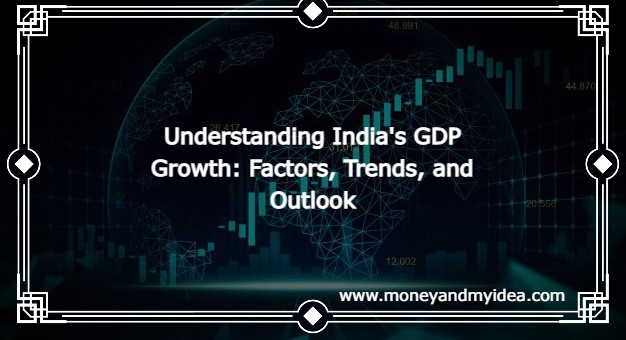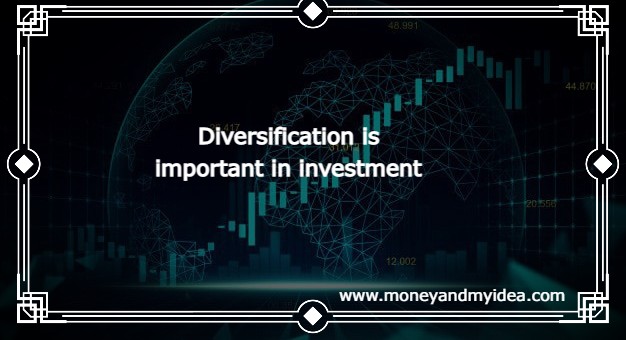If you want to start your personal financing planning but you don’t know how to do, So you are on the right place. I will give you here a 10 financial book summary that will help you in your financial planning also for stock market knowledge.
In this article I reviewed top 10 personal finance book, in which you can learn about finance as well as stock market.
Table of Contents
ToggleRich Dad Poor Dad
Author: Robert T. Kiyosaki
Book structure:
To assist you in creating the mindset and financial understanding you need to create a life of prosperity and independence, this book tells the story of a boy with two fathers—one rich and the other poor.
Why should you read it
Although this book is divisive, it simply works when it comes to motivating you to take action. It is partially based on the life of Kiyosaki, who learned two distinct approaches to managing money from his father and his best friend. The lessons cover a variety of topics, including how to think about money conceptually, fundamental concepts in accounting, budgeting, and investing, as well as how to manage your money so it works for you. By the time the story is over, you’ll enjoy using the advice.
Key points:
⦁ Use your money to acquire assets, not liabilities.
⦁ Manage risks instead of avoiding them.
⦁ Work to learn, not to earn.
Favorite line:
“The main reason that over 90 percent of the American public struggles financially is because they play not to lose. They don’t play to win.” — Robert T. Kiyosaki


Money: Master The Game
Author: Tony Robbins
Book structure:
Money: Master The Game lays out seven simple steps to financial freedom, based on the advice of the world’s best billionaire investors, interviewed by Tony Robbins.
Why should you read it
Tony Robbins worked on this book for 10 years. He made the decision to empower common people in securing a bright future in the wake of the 2008 financial crisis. He assembled their greatest tactics after speaking with various rich financial luminaries, including Ray Dalio, Warren Buffett, and Jack Bogle. Everything from mentality shifts to money-saving advice to asset allocation is covered in the book. Even by themselves, the interview transcripts are worth the cost of the book.
Key points:
⦁ Compound interest is a powerful exponential effect that should never be ignored.
⦁ Choose one of three financial objectives—basic needs, basics enjoyment, or financial independence—to demonstrate to yourself that you can achieve financial freedom.
⦁ Use a three-bucket strategy to diversify your investments: a security bucket, a growth bucket, and a dream bucket.
Favorite line:
“You either master money, or, on some level, money masters you!” — Tony Robbins


The Barefoot Investor
Author: Scott Pape
Book structure:
The Barefoot Investor is an Australian farm boy’s no-BS guide to taking charge of your personal finances with a simple system to eliminate debt, live in the now, and still retire in peace.
Why should you read it
Australia’s most respected authority on personal finance is Scott Pape. He’s sold more than 1,000,000 copies of his book. Even though Pape was raised on a farm, he desired to become wealthy through stock trading. That didn’t go as planned. He returned to his farm and now compares living simply to managing your finances. The book teaches you how to take charge in three stages: planting, growing, and harvesting your cash. He strikes a balance between conventional guidance and unconventional suggestions. A fantastic book for new readers.
Key points:
⦁ Simplify your money management by using different bank accounts.
⦁ Shred your credit cards first, then start paying off your debt.
⦁ Automate some of your retirement planning with index funds.
Favorite line:
“You can continue living in the past, beating yourself up about the money mistakes you made when you were younger, telling yourself you’ve left it too late…or you can rise up and make yourself proud.” — Scott Pape


The One-Page Financial Plan
Author: Carl Richards
Book structure:
The One-Page Financial Plan makes financial planning stop feeling like a burden for the less disciplined by helping you plan your entire financial future on a single page
Why should you read it
Over the past 20 years, Carl Richards has worked at Wells Fargo, Merrill Lynch, and other financial institutions for more than 40,000 hours as a financial counsellor. His Instagram sketches have gained a lot of traction. They provide examples of the concepts that enabled him and his wife to organise their finances on a single sheet of paper. You can learn how to do this from his book.
Key points:
⦁ Set some goals but stay flexible and fine-tune along the way.
⦁ Turn budgeting into a game to make saving fun.
⦁ View paying off debt as an investment in your future.
Favorite line:
“People who understand interest earn it. People who don’t pay it.” — Carl Richards


The Intelligent Investor
Author: Benjamin Graham
Book structure:
The Intelligent Investor explains value investing, which is focused on generating steady, long-term profits by ignoring the current market and picking companies with high intrinsic value.
Why should you read it
According to Warren Buffett, this is the best investing book ever published. It is based on lessons Warren Buffett learned while a young student in Benjamin Graham’s teachings. Value investors seek out businesses with strong fundamentals and purchase their stock at a bargain. All that’s left to do is wait after that. They will eventually reveal their true worth. a genuine, enduring classic.
Key points:
⦁ There are 3 principles to intelligent investing: analyze for the long term, protect yourself from losses, and don’t go for crazy profits.
⦁ Never trust Mr. Market, he can be very irrational in the short and medium term.
⦁ Stick to a strict formula by which you make all your investments, and you’ll do fine.
Favorite line:
“Those who do not remember the past are condemned to repeat it.” — Benjamin Graham


The Little Book That Beats The Market
Author: Joel Greenblatt
Book structure:
The Little Book That (Still) Beats The Market is a step-by-step tutorial to implement a simple, mathematical formula when buying stocks which guarantees long-term profits.
Why should you read it
Joel Greenblatt is a legendary investor. From 1986 until 2006, his investing firm Gotham Funds experienced an annual return of above 40%. Joel has succeeded in making Benjamin Graham’s value investing strategy into a system that only needs to be updated once a year using a straightforward formula. He recorded it in 2005 so he could give it to his kids. This is your best option if you’re seeking for a precise, hassle-free investment strategy.
Key points:
⦁ Look at earnings yield and return on capital to evaluate stocks.
⦁ Rank and combine these two factors to find winning companies.
⦁ Be patient, it’s what makes this formula unpopular, but effective.
Favorite line:
“Choosing individual stocks without any idea of what you’re looking for is like running through a dynamite factory with a burning match. You may live, but you’re still an idiot.” — Joel Greenblatt


The Millionaire Fastlane
Author: MJ DeMarco
Book structure:
The Millionaire Fastlane points out what’s wrong with the old “get a degree, get a job, work hard, retire rich” model, defines wealth in a new way, and shows you the path to retiring young.
Why should you read it
The title of this book must be the most deceptive ever. It’s not at all a get-rich-quick plan. Instead, it is a lesson of tenacity, audacity, risk-taking, and creative thinking. When MJ DeMarco was a teenager, he saw a man driving a Lamborghini and knew he wanted to be wealthy but didn’t want to work for 40 years to get there. He founded, sold, and then repurchased his own business before retiring at age 33 and becoming a multi-millionaire. A motivating read!
Key points:
⦁ Wealth stands for 3 things — and money isn’t one of them: health, relationships, and freedom are what truly matters.
⦁ At some point, you must make your income independent of your time.
⦁ Think like a producer, not like a consumer.
Favorite line:
“Many people want to change their life, but they are not willing to change their choices, and ultimately this changes nothing.” — MJ DeMarco


Think and Grow Rich
Author: Napoleon Hill
Book structure:
Think and Grow Rich is a curation of the 13 most common habits of wealthy and successful people, distilled from studying over 500 individuals over the course of 20 years.
Why should you read it
The world’s most readied book about success may be this one. Napoleon Hill spent 20 years interviewing successful people after steel baron Andrew Carnegie personally assigned him the assignment. The final product, which has 70 million copies sold, was published in 1937. It’s a book about having an outlook and taking the necessary action to succeed. This is for you if you’re a young entrepreneur.
Key points:
⦁ Use autosuggestion to build an unshakeable belief in yourself.
⦁ Be stubborn and always stick to your decisions.
⦁ Join a Mastermind group to cut your learning curve.
Favorite line:
“The starting point of all achievement is desire. Keep this constantly in mind. Weak desire brings weak results, just as a small fire makes a small amount of heat.” — Napoleon Hill


The Total Money Makeover
Author: Dave Ramsey
Book structure:
The Total Money Makeover shows you how to stop accepting debt as normal, eliminate it forever in small increments, and build the financial future you deserve in seven steps.
Why should you read it
One of the most well-known radio programmers ever in the USA is The Dave Ramsey Show. When Ramsey has assisted someone in getting out of debt, they appear on his show to discuss the experience. He goes beyond simple quantitative advice and assists them with the emotional problems associated with dealing with money. Ramsey advises you to pay off your bills in order of size, start saving gradually, and then make investments once you’ve taken care of the essentials. An unwavering approach to finances
Key points:
⦁ Before you do anything else, put away $1,000 in an emergency fund.
⦁ Start paying down your debts, beginning with the smallest.
⦁ Grow your emergency fund until you have at least a three-month buffer.
Favorite line:
“We buy things we don’t need with money we don’t have to impress people we don’t like.” — Dave Ramsey


Secrets Of The Millionaire Mind
Author: T. Harv Eker
Book structure:
He makes the claim that our ability to succeed financially is not a factor of our genetic make-up and demonstrates how to get beyond mental obstacles and adopt the routines and ways of thinking of the wealthy.
Why should you read it
T. Harv Eker examined his own connection with money after experiencing an extreme rollercoaster of establishing, selling, losing, and failing at more than a dozen businesses. He discovered that, like the majority of us, he had simply imitated his parents’ financial habits. The detrimental components of that wiring will be undone by reading this book, and they will be replaced by sound financial principles and practises.
Key points:
⦁ You naturally tend to replicate your parents’ income strategies.
⦁ If you want to control your finances, you first have to realize you’re the one at the wheel.
⦁ Don’t despise rich people or you’ll never become rich yourself.
Favorite line:
“If you want to change the fruits, you will first have to change the roots. If you want to change the visible, you must first change the invisible.” — T. Harv Eker















Pingback: Simple Money Management Tips to Improve Your Finances - Money & my Idea